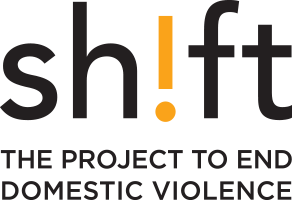Date: September 2024
Authors: Baker, E., Matejko, E., Exner-Cortens D.,Wright, A.,Lee, L.,& Lund, D.
At Shift: The Project to End Domestic Violence, we continue to produce publications and pilot new projects that are designed to advance a future free from violence. This new paper highlights the work Shift has done to equip educators and social workers with the skills and understanding to foster safe, supportive schools and communities for youth.
Building individual youths’ capacities for healthy, violence-free interpersonal relationships within school settings is a powerful strategy for stopping adolescent dating violence before it starts. Given this, taking up a social justice lens to ensure educators and social workers are prepared to support healthy relationships among youth has meaningful violence-prevention potential.
Co-authored by Shift’s Lianne Lee, this paper presents findings from a symposium series: Advancing Healthy Relationships and Social Justice. Co-developed by Shift: The Project to End Domestic Violence and the Werklund School of Education at the University of Calgary, this symposium series was designed to equip education and social work students with skills to prevent adolescent dating violence (ADV) in school settings through a social justice lens. The evaluation of the symposium in this paper includes survey and interview data from participants, showing increased willingness and confidence in preventing and responding to ADV after completing the symposium series.
Ultimately, this work highlights the importance of incorporating critical theory into ADV prevention efforts, especially as it relates to serving marginalized youth and promoting social justice in schools. Building safe school environments, promoting healthy youth relationality, and understanding how power and marginalization impact dating relationships are critical to the prevention of adolescent dating violence.
Dr. Darren Lund, co-author of this paper, passed away in 2021. His social justice efforts continue to live through his students, colleagues, and body of work.
You can read the full paper here.
Key Quotes
- “Connecting structural inequalities and ADV allows teachers and social workers to recognize and respond to inequities, and sustain bias-free and equitable schools that provide safe and violence-free environments.” – Baker et al., 2024
- “It is critical to equip teachers and social workers who work in school settings with the skills and knowledge needed to recognize, respond to, and support youth who may be experiencing ADV.” – Baker et al., 2024
Associated Resources


